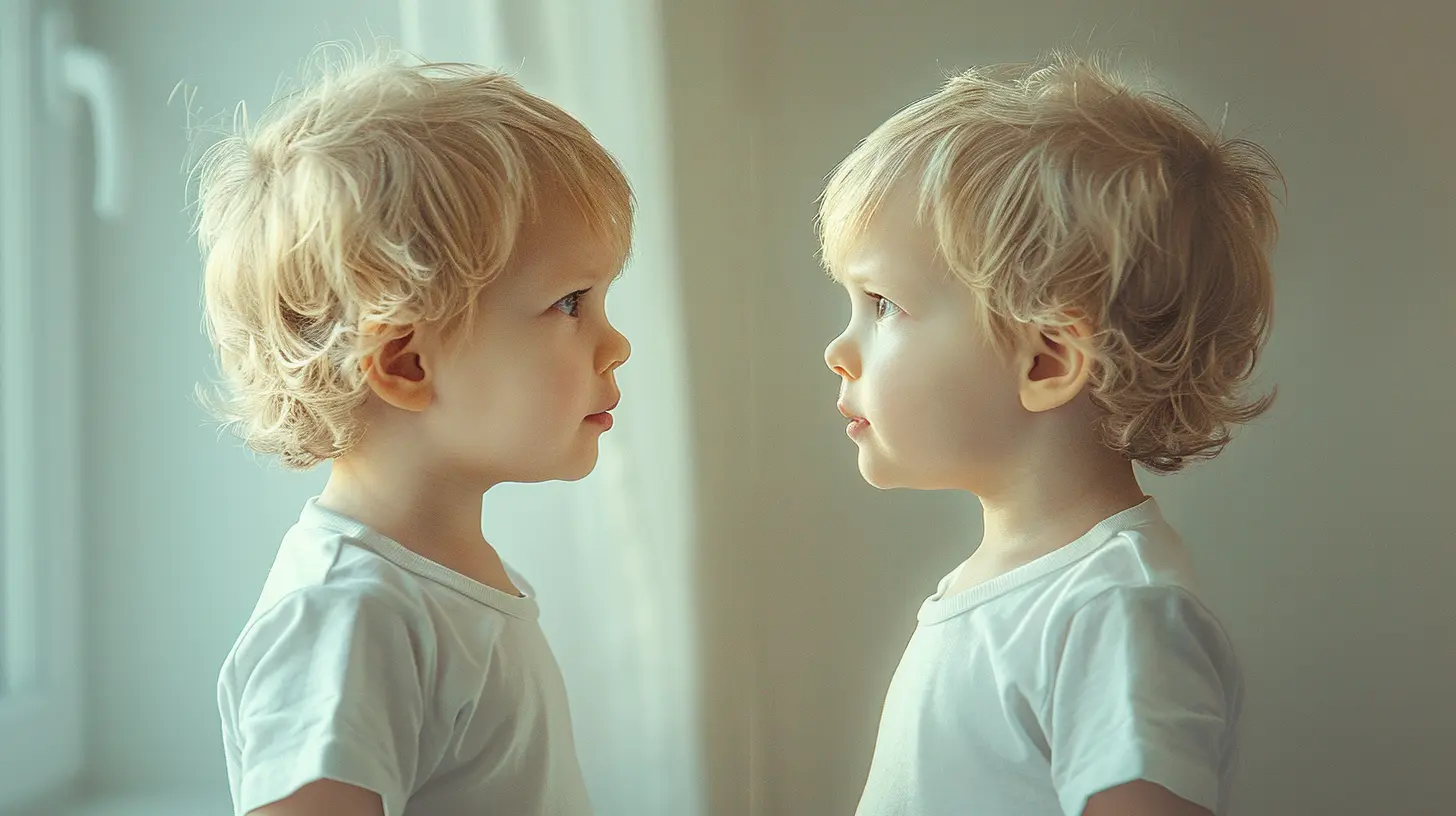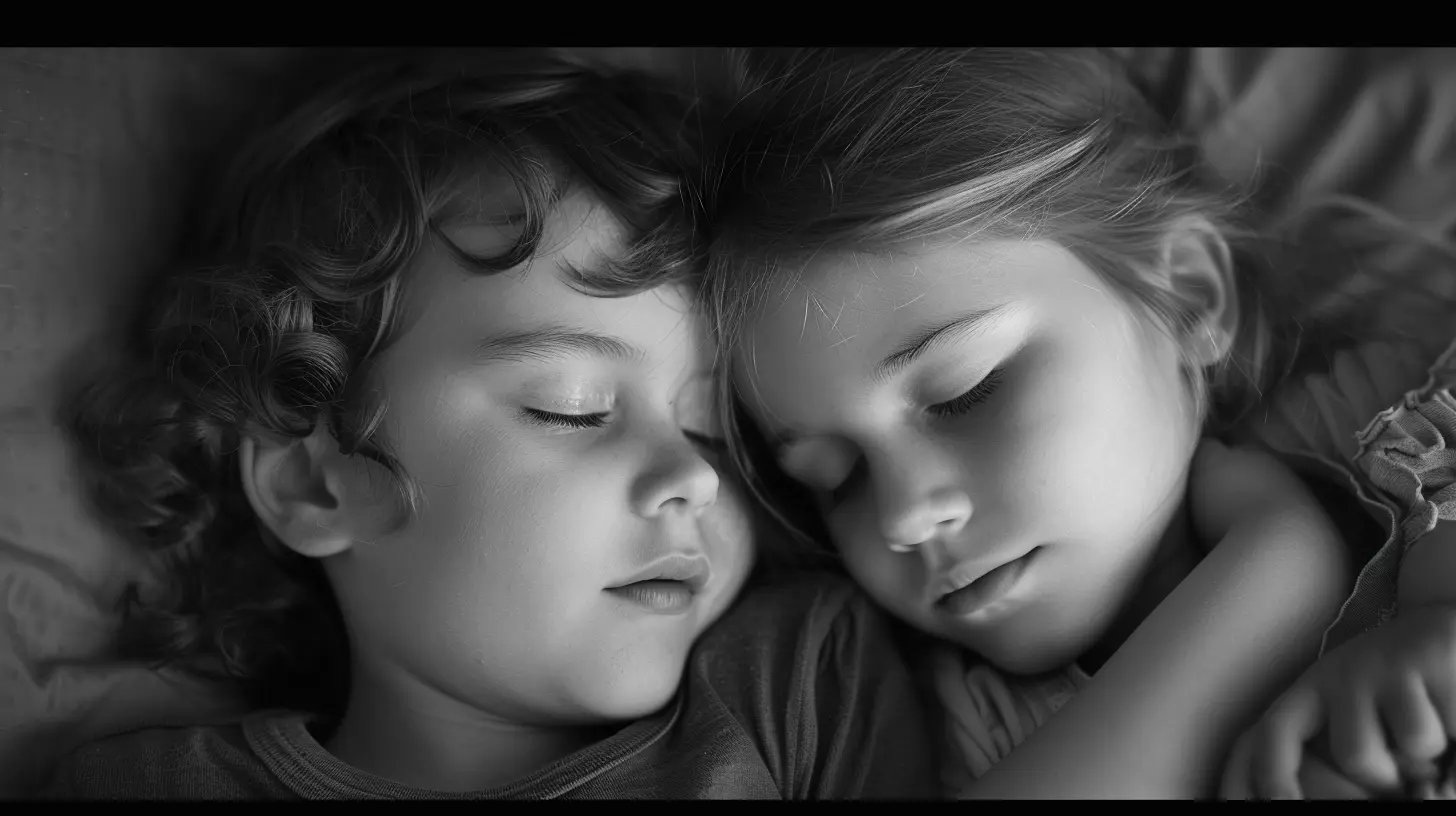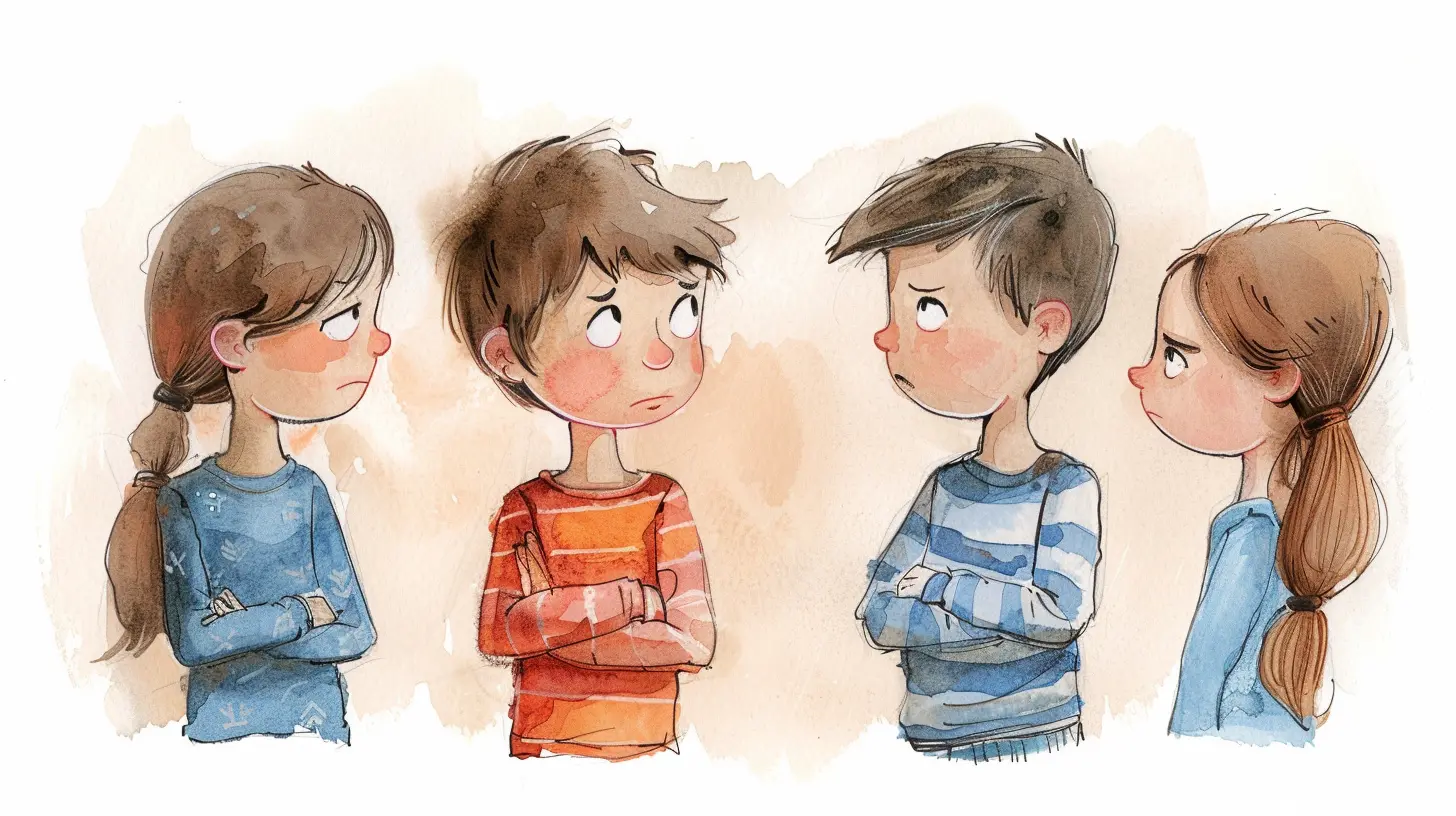How Sibling Dynamics Can Influence Self-Worth
24 September 2025
There’s a special kind of magic that lives in sibling relationships. It’s the laughter echoing through halls, the playful arguments over who gets the front seat, and the silent support in life’s scariest moments. But behind the scenes of sibling rivalry, shared memories, and late-night chats lies something deeper—something that subtly carves out a child’s sense of self.
Yep, I’m talking about self-worth.
Sibling dynamics, believe it or not, play a massive role in how children view themselves. So if you’re a parent wondering why your oldest child is a perfectionist or why your middle kiddo feels a bit invisible, grab a cup of coffee and stick around. We’re diving deep into sibling dynamics and how these complex bonds help shape one’s self-value.
The Unseen Blueprint: Sibling Relationships As Identity Builders
Let’s start with this—siblings are like the mirrors we hold up to ourselves during our most formative years.Think about it: your kids live under the same roof, eat the same food, and are raised by the same parents (more or less). But why are they so different? One’s the star athlete, another’s the quiet bookworm, and the youngest? The charming negotiator who somehow always gets the last cookie.
Each child is crafting an identity—not in a vacuum, but in comparison to their siblings.
And guess what forms quietly in the background of those comparisons? Their self-worth.
Sibling interactions, whether supportive or strained, create blueprints for how children view their value in the world. It’s not just about rivalry; it’s about how they measure themselves—against you, your attention, and their siblings’ achievements.
The Role of Birth Order: More Than Just Stereotypes
So let’s get the classics out of the way.You’ve probably heard of birth-order psychology. Eldest = responsible leader, middle = peacekeeper, youngest = rebel, and only child = little adult. Sounds cliché? Maybe. But there’s a seed of truth in those roles, especially when it comes to self-worth.
The Firstborn: The Standard Setter
Firstborns often grow up feeling like they have to set the bar. They’re handed the unwritten rule book of expectations—and they follow it like their life depends on it. Success becomes a marker of worth.But with that can come pressure. If they equate love with achievement, they may struggle with self-worth when they fail.
The Middle Child: The Invisible Peacekeeper
Middle children can sometimes feel like background extras in the family drama. They're neither the trailblazer nor the baby. So, they often carve out quiet niches—becoming the peacemakers or the creatives.Because attention doesn’t come as easily, middle kids might wrestle with invisibility. If they don’t feel seen, their self-worth can take a hit.
The Youngest: The Beloved Wild Card
The youngest often gets showered in affection and leniency. Sounds great, right? But sometimes, being the “cute one” means people don’t take them seriously. And if they start relying on charm instead of confidence, their self-worth might be built on approval rather than authenticity.
Comparisons: The Quiet Killer of Confidence
“Why can’t you be more like your sister?”Ouch.
Even if it’s said with love (or out of frustration), that kind of comparison cuts deep. And it lingers.
You see, kids absorb those sentences like sponges. When one sibling gets praised for grades and the other for being “easygoing,” they'll start defining their worth through those lenses. Instead of feeling whole, they might feel like they only matter when they meet a certain expectation.
And comparisons don’t just come from parents. Friends, teachers, extended family—they all play a part. Ever had an aunt comment on how “one of them's the smart one, and the other’s the funny one”? Yeah. That sticks.
Rivalry or Rehearsal? The Practice Ground for Life
Here’s something cool: sibling conflicts aren’t always bad. In fact, they’re like tiny rehearsals for real-world relationships. Arguing with a sibling teaches communication, negotiation, and standing up for yourself.But—and this is big—if the rivalry becomes constant competition, it can breed insecurity. A child starts to believe they’re not “enough” unless they win.
So ask yourself: is your home a safe space to fail? Do your kids feel celebrated for trying, not just winning? Because those moments are what nurture true self-worth.
Parental Dynamics: Your Role in the Sibling Story
Parents, you’re more than just referees. You’re the narrators of the sibling story your kids are living.How you speak about your children shapes how they see themselves—and each other.
Avoid Labels
“My little genius.” “The shy one.” “The troublemaker.” These seem harmless but can trap children in boxes. Instead, describe behaviors, not identities.Balance the Glow
If one child is shining today—great! But make time to spotlight the others too, even in small ways. This reminds them that love isn’t conditional, and worth isn’t a competition.Create Team Moments
Encourage collaboration over competition. Maybe it’s a chore they tackle together or a joint art project. When siblings team up, they build mutual respect—and confidence that they’re valued beyond their skills.When One Shines, The Other... Shrinks?
It’s natural for families to have a “star.” Maybe one child is racking up trophies while their sibling is still figuring out their thing. This can create an uneven spotlight.But here’s where it gets tricky: one child’s success, if not handled delicately, can make another feel inferior.
They might internalize the belief that they’re not “special,” simply because they’re different.
The key? Celebrate diversity in strengths. Not everyone’s a math whiz or a sports star. Maybe one kid’s gift is empathy. That’s just as worthy of applause.
The Power of Sibling Support
Now let’s flip the coin.When siblings support each other, amazing things happen. A firstborn tutoring their younger brother, a middle child cheering on their older sister at a recital—it reinforces the belief that they matter to each other.
This kind of support weaves a safety net. So even on days when the world feels tough, they’ve got someone in their corner. And knowing that? It builds core-level confidence.
The Long-Term Ripples of Sibling Dynamics
Let’s fast-forward a bit.The way your kids interact today can echo into adulthood. Sibling dynamics often influence romantic relationships, friendships, and even career choices.
A child who constantly played second fiddle might settle for less in relationships. One who always had to shine might struggle with vulnerability. But here’s the good news: the script isn’t set in stone.
With awareness and intentional parenting, you can help each child feel seen, valued, and worthy—on their own terms.
How to Nurture Positive Sibling Relationships
Alright, let’s get practical. What can you actually do as a parent to guide the sibling dynamic in a healthy direction?1. Spend One-on-One Time
Each kid needs solo time with you. It tells them, “You matter—not just in relation to your sibling, but as your own person.”2. Encourage Communication
Give them the tools to talk it out, not just act it out. Teach them to express feelings, not just frustrations.3. Celebrate Individuality
One loves painting, the other loves science? Perfect. Highlight what makes each of them unique without comparing.4. Model Self-Worth
Your kids watch you. If you speak kindly to yourself, respect your boundaries, and manage mistakes with grace, you teach them to do the same.In Case Things Get Rocky... Seek Help
Sometimes, sibling friction runs deeper. Maybe past trauma, family dynamics, or unspoken resentment are adding fuel to the fire.Therapists—especially family or child therapists—can help untangle those knots. There’s no shame in reaching out. In fact, it shows your commitment to creating a home where every child feels safe and seen.
A Final Thought: Siblings as Mirrors of Self-Worth
Your kids’ relationships with each other offer a powerful lens into how they see themselves.They're not just fighting over toys—they're seeking belonging. They're not just joking around—they're learning where they stand.
So the next time you hear them squabble or see one glare while the other gets praised, pause. Listen. Step in with empathy, not just discipline.
You’re not just raising kids. You’re raising future adults who’ll carry their sense of self into every corner of life—from friendships to careers to love.
And how they feel about themselves? That starts with how they feel at home—with you, and beside each other.
all images in this post were generated using AI tools
Category:
Building Self EsteemAuthor:

Liam Huffman
Discussion
rate this article
1 comments
Olympia Fields
What a beautifully insightful article! It's so important to recognize how sibling relationships shape our self-worth. Thank you for shedding light on this topic—your tips and reflections will surely help many parents foster healthier dynamics and boost their children's confidence!
October 8, 2025 at 4:17 PM

Liam Huffman
Thank you so much for your kind words! I'm glad you found the article insightful and valuable for parents. Your support means a lot!


